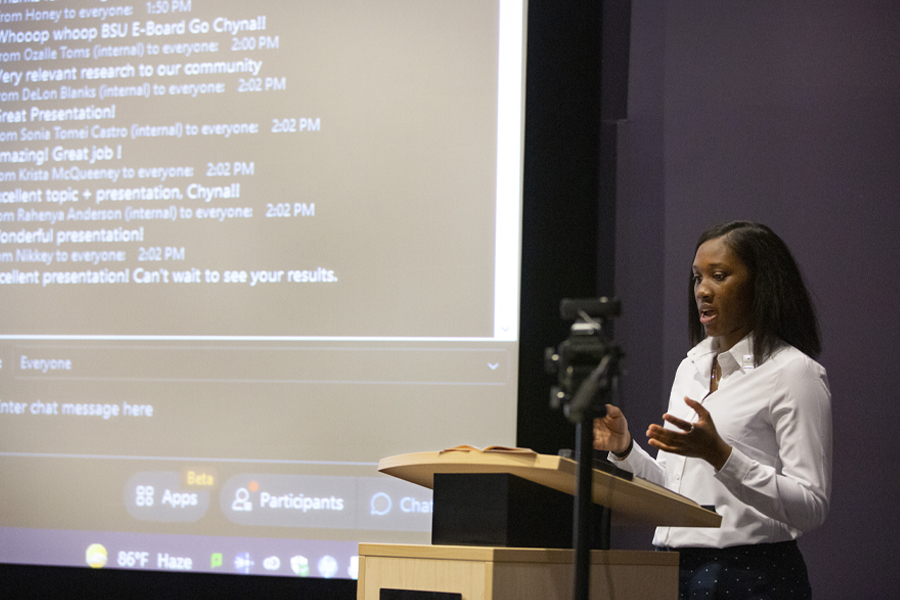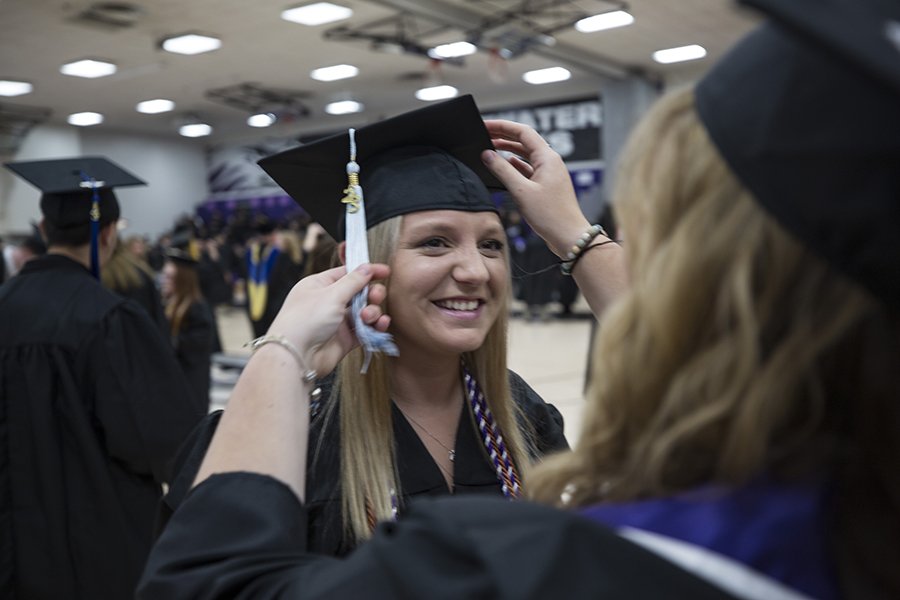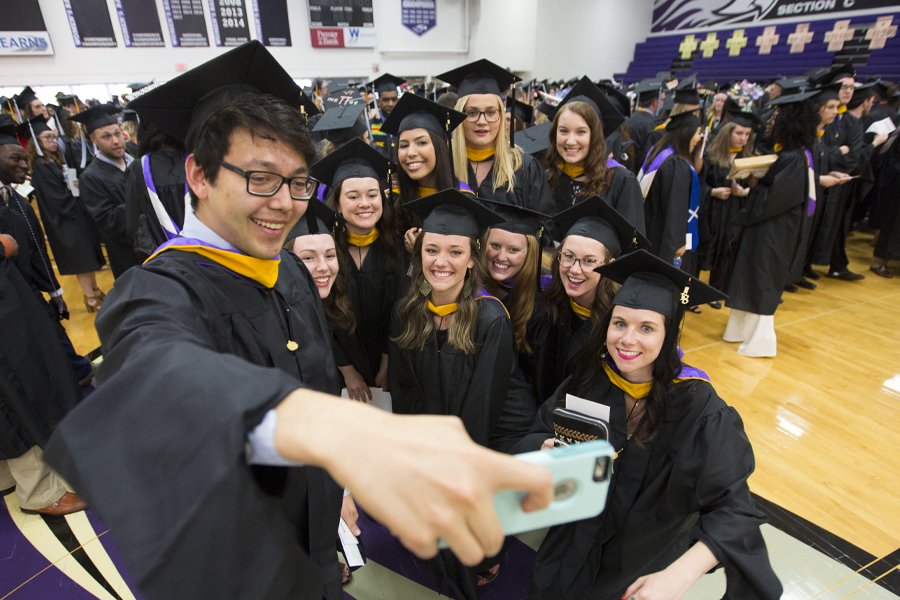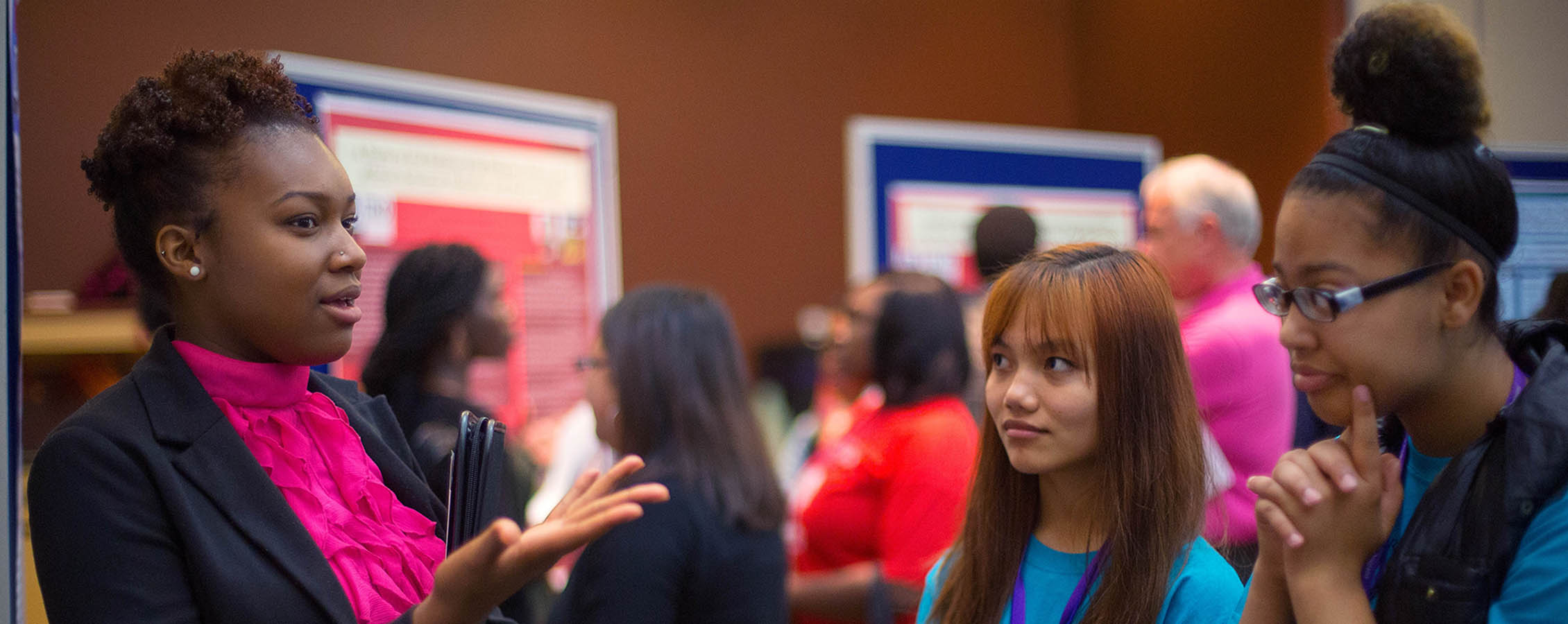DEPARTMENT OF PSYCHOLOGY
Psychology is the scientific study of human behavior, emotion, and thought. The goals of psychology are to describe, explain, predict, and influence mental and behavioral processes. In simple terms, it explores how and why people think, feel, and act the way they do.
As a field, psychology connects science and humanity, helping us understand ourselves and others on a deeper level. Psychologists use objective observation, experimentation, and both quantitative and qualitative analysis to study the complexities of the human mind. As a psychology student, at UW-Whitewater, you’ll explore topics such as personality, learning, relationships, and mental health while developing strong skills in critical thinking, research, and communication. You can take part in unique co-curricular activities such as the Nursing Home Visitation Program, undergraduate research, and Psi Chi/Psychology Club. The Department is also home to the School Psychology Program.
Contact us
Elizabeth Olson
Department Chair and Associate Professor
262-472-5400
Laurentide Hall 1221
UW-Whitewater offers students a wide variety of scholarships, both through the university, individual colleges, and departments. The Department of Psychology has a number of scholarships and awards geared specifically toward our students, including:
- Larry & Mary Lee Anding Psychology Scholarship
- Huang-Christner Psychology Scholarship
- Paula Poorman & Susan Simmons Family Psychology
- The Amy Krueger Memorial Scholarship
- Dr. Richard D. Kelley Psychology Scholarship
- Song Family School Psychology Scholarship
- Barbara Ann Hersko Scholarship
More information about these and other scholarships is available through the scholarship portal.
The Department of Psychology supports a number of student clubs and organizations, including PSYCH Club and Psi Chi.
Students may gain valuable research experience through the department's research laboratories and research programs dedicated to conducting psychological research. These labs and programs are typically led by individual faculty members who serve as the "principal investigator" on research studies that are conducted within the lab or program. It's also typical for the research conducted in labs and programs to have a long-term and specific research focus, such as investigating the mechanisms of reward evaluation in the brain, or the relation between reading fluency and reading comprehension among school children. Involvement in a research lab can confer students with a strong background in a particular and focused field of research.
Below are details about several labs/programs within the psychology department. More detail can be obtained by contacting research faculty directly.
Interested students are advised to have successfully completed both PSYCH 215 (Basic Statistical Methods) and PSYCH 216 (Research Methods), and have Junior standing before applying to join a lab or program.
Behavioral Neuroscience Research Lab (Dr. Meg Waraczynski)
We study the neural mechanisms of reward evaluation in the mammalian brain. Specifically, we study how neurochemical manipulations of cells in a structure called the extended amygdala affect rats' evaluation of the reward effect of stimulating the brain's medial forebrain bundle. Ultimately, we seek to computationally model how cellular activity patterns in the extended amygdala represent the momentary value of a reward in the context of the animal's current internal and external environment.
The work of undergraduate assistants is critical to these goals. Each semester students in both psychology and the biological sciences assist with animal testing, data analysis, and other related tasks. Some students earn competitive undergraduate research grants, complete thesis projects, and present their work at professional conferences and in professional journals. Students also get to know other motivated, curious, hard working students with a variety of interests and gain experience working as part of a team to achieve important goals. If you would like more information about our lab contact Dr. Waraczynski (waraczym@uww.edu) or any students currently part of our research team.
School-Based Reading Research (Dr. Christine Neddenriep)
Our research team is interested in looking at the relationship between reading fluency (reading with ease) and comprehension (reading for understanding) in elementary-school children. We are currently working with third-grade students at Washington Elementary School in Whitewater to improve their fluency and comprehension by using a strategy, Reread-Adapt and Answer-Comprehend (RAAC) which has been shown to increase students' speed and accuracy in reading as well as their understanding of fictional text. However, RAAC has not been applied to improving understanding of nonfiction text. Our research team has developed specific comprehension questions to assist students in understanding nonfiction text using the RAAC method. We use single-case, experimental designs (e.g., multiple baseline design across participants) to evaluate the effects of the intervention. We first evaluate the effects of fluency instruction alone on reading speed and accuracy as well as comprehension and then we add the comprehension instruction to determine the relative change in both fluency and comprehension with the addition of comprehension instruction. Our team currently includes one undergraduate student, Shawna Loniello, who is in the Research Apprenticeship Program (RAP) and five graduate students in school psychology.
The Laboratory for Language and Emotion (Dr. David Havas)
The Laboratory for Language and Emotion uses the theory of embodied cognition to explore the relationship between language and emotion. This lab is specifically interested in how language can evoke strong emotions in people, and also, how emotions impact language comprehension. Recent research has shown that manipulations of participants' facial expressions of emotion change the speed with which they comprehend emotional sentences. For example, pleasant sentences are read faster while smiling than while frowning, and vice versa for unpleasant sentences. This finding helps support theories of embodied cognition, and shows that emotional states interact with sentence understanding. Students who participate in this lab will be exposed to a variety of research methods, including the use of electrodes and eye tracking equipment. Please visit the lab's website or contact Dr. Havas (havasd@uww.edu) for more information about this lab.
The Applied Health Psychology Lab (Dr. Sasha Karnes)
The Applied Health Psychology Lab is currently recruiting and enrolling adult patients from Aurora Health Care for a randomized controlled trial. The purpose of the research is to test the effectiveness of a web-based program that is based on motivational interviewing for increasing physical activity. Undergraduate researchers are involved with day-to-day study operations. Specific tasks include gathering and cataloging participant intake information, obtaining informed consent, collecting survey data, and sending intervention materials.
Explore our academic programs




Psychology
Major/Emphasis, MinorPursuing a degree in psychology will help you learn to understand the social and biological bases of behavior. Students will gain the essential abilities to reason with purpose and will always be intellectually curious, learning critical thinking skills that will be valuable to their careers and daily lives.
Psychology (Business)
MinorAdding a minor in psychology to your business major is a powerful combination that will equip you to understand people and how and why they think and act.
Psychology (High School Education)
MinorFuture high school teachers will benefit greatly by adding a minor in psychology to their education major. Enhance your psychological understanding and hone research skills as you prepare to teach and mentor the next generation.
School Psychology
Master'sThe School Psychology program is a three-year, full-time sequence of coursework and field experiences that prepares students with the knowledge, skills, and dispositions necessary to become school psychologists. In the second year, students begin the Education Specialist Degree (Ed.S) sequence, known as the practicum year.
What does my contribution directly support?
How much money can make an impact?
Donate now to support the Department of Psychology
If you're interested in starting a scholarship or making a pledge, please contact the UW-Whitewater Foundation, Inc at 262-472-1105 or through email at foundation@uww.edu.

